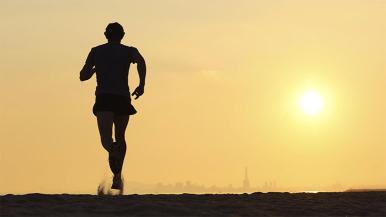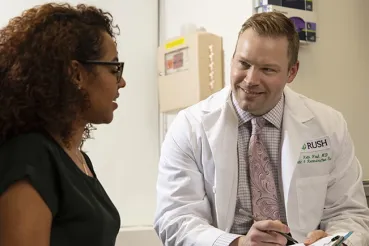A heat wave sweeping across the U.S. could put millions of Americans at greater risk of heat-related illnesses. Here's what you can do to stay cool and safe this week — and throughout the scorching summer months.
Heat illnesses
Heat illnesses can occur when the body is not able to properly cool itself. While the body normally cools itself by sweating, this might not be enough to combat extreme heat, Rush physician Kush Desai, MD, says.
“In some cases, your body’s temperature rises faster than it can cool itself down, which has the potential to cause damage to vital organs,” he explains.
- Heat exhaustion can occur after you’ve been exposed to high temperatures. It’s often accompanied by dehydration, and if left untreated, it can progress into more serious heatstroke.
- Heatstroke can happen when your body gets too hot, and it's considered a medical emergency. If it's not treated quickly, heatstroke can be life-threatening.
Symptoms of heat illnesses
Even though all heat-related deaths and illnesses are preventable, heat-related illness kills more people — roughly 600 to 700 — in the U.S. each year than any other weather-related event, according to the Centers for Disease Control and Prevention.
Here are the signs and symptoms of common heat illnesses to watch for:
- Heat exhaustion: High body temperature, high heart rate and low blood pressure, dehydration and electrolyte loss, extreme weakness, trouble walking, fainting or light-headedness, abdominal cramps, headaches, nausea, and vomiting or diarrhea.
- Heatstroke: High body temperature, profuse sweating, headache; irrational behavior, emotional instability, altered consciousness, coma or seizure.
Tips to avoid heatstroke and heat exhaustion
Here's what you can do reduce your risk of heat illness:
- Exercise early in the day, before it gets too hot or after sunset.
- Manage the intensity of your activity, and take breaks when you exercise.
- Stay hydrated! Make sure to drink enough fluids, such as water or sports drinks, while you are outdoors. And do not drink alcohol or a caffeinated beverage before exercising, as they both can dehydrate you.
- Put a cold pack or cool cloth on your neck, armpits or groin.
- Wear loose, lightweight, light-colored clothes.
- Wear sunscreen and reapply frequently
- Spray yourself with cool water.
- Move into the shade or go into an air-conditioned building or car.
- Do not leave children in cars.
- Take a cool shower or bath.
- Pay attention to warnings about high temperatures, and avoid being outdoors as much as possible on days you know will be extremely hot.
- Know the symptoms of heat exhaustion and heatstroke. If you see signs, take immediate action.
Also, check on at-risk relatives and friends during heat waves to make sure they are able to stay cool — and to help if needed. Especially for people who don’t have air conditioning, the summer heat can quickly make living spaces dangerous.




